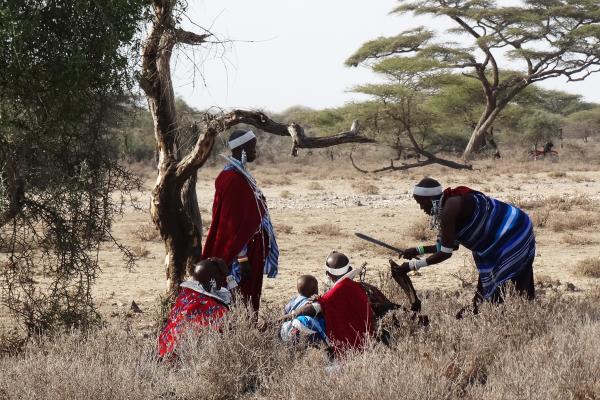The eviction of Maasai from their ‘ancestral land’, as referred by many, has sparked an intense debate amongst Tanzanians and decried by many international human rights and environmental organizations.
A big part of this debate is across social media platforms, particularly on Twitter, with others initiating online petitions to denounce the eviction of the indigenous Maasai from Ngorongoro.
Ngorongoro Conservation Authority Area (NCCA) released its 30-day eviction order on April 12, 2021, requiring the Maasai living within the area to leave and demolish all permanent buildings reportedly built against the laws and authority’s notice.
In the same vein, NCAA has enlisted several illegal properties for immediate demolishment, such as a village office, a food store at Kakesio village, a milk project office, a police post located at Endulen village, a primary school, a dispensary, a maize milling station, and a veterinary office at Osinoni village.
Academicians, political leaders and activists have picked sides on this, with others supporting the NCAA’s order of eviction while others vehemently labelling it inhumane and calling for a more viable and inclusive method that would ensure the protection of both the Maasai, environment and the wildlife rights.
For decades the Maasai have been part of the Ngorongoro ecosystem, walking and grazing their herd within the plains of Ngorongoro along with wild beats and searching for their daily needs on the sacred land known by many as the cradle of humankind.
However, the Maasai recent activities and their unprecedented population growth have raised concerns about the extinction of rare species and the fear of the looming loss of tourism revenues prompted by the destruction of the area’s ecosystem instigated by excessive, unusual activities in the area.
The NCAA report reveals the dramatic increase of the Maasai population from 8,000 residents in 1959 to more than 100,000 in 2022.
Despite the anticipated threats that the Maasai activities could poise to the future of NCA, their eviction might cause more harm to the reputation of the area itself.
Inarguably, the co-existence between the Maasai and the animals on the green slopes of Ngorongoro serves as the main attraction to millions of tourists swarming the area.
For whatever reasons, we cannot entirely deny the narratives about current threats at Ngorongoro’s ecosystem. Still, we cannot agree on adopting ways to preserve Ngorongoro through jeopardizing the livelihoods of others, for there is always two ways traffic in every situation.
President Samia’s directives on handling the Ngorongoro’s case were not stern as conceived by many, but modest and calm to ensure a collective and inclusive approach that would protect everyone’s interests.
The prevailing ecological threats at Ngorongoro must have been instigated by the high illiteracy rate amongst the Maasai, as data show that over 64% of the residents within the area are reported illiterate.
Before we rush into evicting the Maasai, we can start by providing them with much-needed education, particularly on sustainable environmental conservation and reproductive health education (family planning). Providing education to the Maasai’s in Ngorongoro shall lead to congenial co-existence between humans and animals.
If it is about intervention, it should be inclusive, comprising equal representation from community representatives, private sectors, international bodies, ecological experts and other groups to ensure joint resolutions.
Also, the government should see the need to form an independent commission of enquiry on Ngorongoro, which will come up with probable recommendations that balances the interests of the Maasai community ecology and serve the best interest of the tourism sector.
The decision by the government to halt the Maasai eviction order was received by charm. For the best interest of the tourism sector in Tanzania, we need the Maasai in Ngorongoro as much as we need the animals, as the dual form the best attraction of an area.
Their unique culture and lifestyle is the best attraction any party in Africa could hardly offer, except in Ngorongoro. Thus, there is every reason to ensure co-existence and not displacement.


